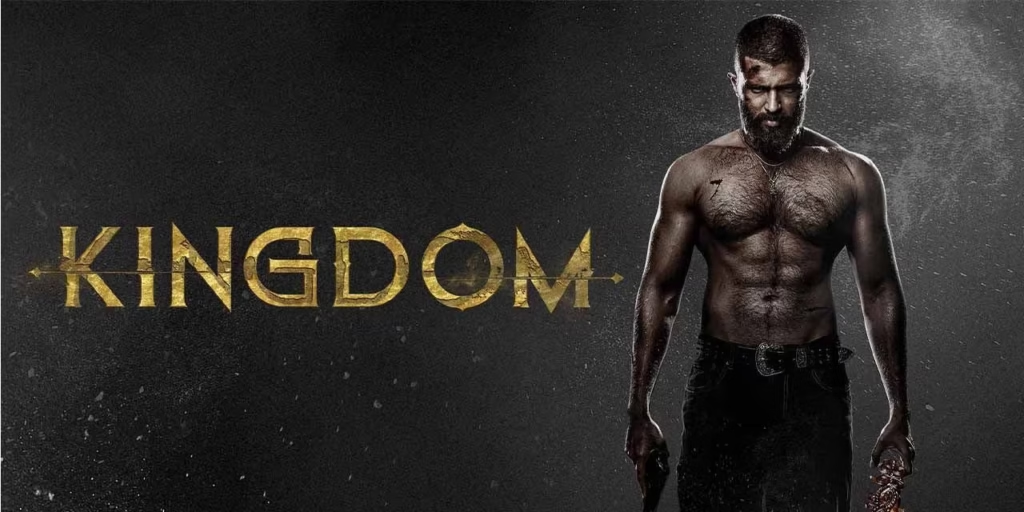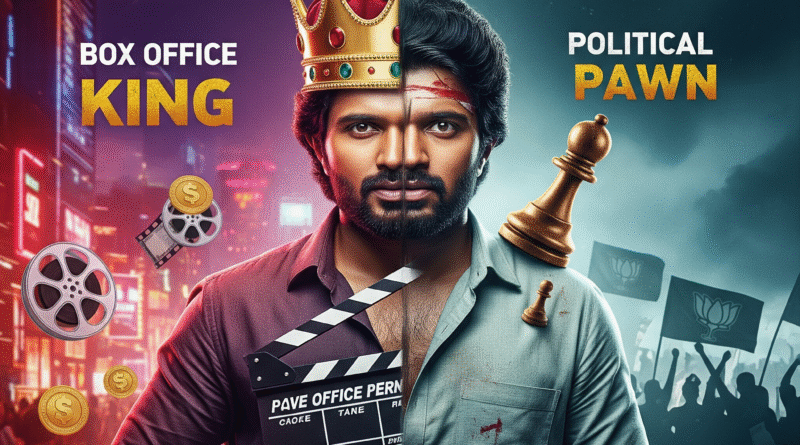Vijay Deverakonda’s ‘Kingdom’: Navigating Box Office Success and Political Controversy
Vijay Deverakonda’s ‘Kingdom’: Navigating Box Office Success and Political Controversy : Whenever a new film hits the screens, it sparks conversation, but some films ignite a full-blown debate. Vijay Deverakonda’s latest movie, ‘Kingdom’, directed by Gowtam Tinnanuri, is one such example. While the film has been a major commercial success, it has also become the center of a significant political controversy. This analysis explores the dual nature of the film’s journey as both a box office triumph and a subject of intense public scrutiny.

The Film’s Box Office Performance
‘Kingdom’ has proven to be a resounding success since its release. The film’s opening weekend was particularly strong, with first-day collections exceeding ₹15 crore and the total box office haul crossing the ₹40 crore mark within just 3-4 days. This performance has been widely celebrated as a significant comeback for Vijay Deverakonda’s career, cementing his star power. The film’s success is attributed to several factors:
- Powerful Performance: Vijay Deverakonda’s portrayal of the protagonist has received widespread critical acclaim from audiences, who have praised his intense and compelling performance.
- High-Octane Action: The movie’s action sequences are a major draw for moviegoers, contributing to the film’s entertainment value.
- Anirudh’s BGM: The background score by Anirudh Ravichander has been a highlight, enhancing the cinematic experience and creating a powerful atmosphere.
The ‘Kingdom’ Controversy: Allegations and Protests
Despite its commercial success, ‘Kingdom’ has faced significant backlash from certain groups, particularly in Tamil Nadu. The controversy stems from the film’s plot, which is set in Sri Lanka during the 1920s and spans seven decades. The film follows a police constable’s journey in Jaffna, Sri Lanka, as he searches for his brother.
Political parties and community organizations in Tamil Nadu have raised strong objections to the film’s depiction of Sri Lankan Tamils and their historical leaders. They allege that the movie misrepresents the community by portraying them in a negative light and labeling them as terrorists. These groups have organized protests and called for a ban on the film, claiming that such a portrayal is highly objectionable and insensitive.
This is not the first instance of a film facing such accusations. Several movies in the past have been met with similar protests, highlighting the ongoing sensitivity surrounding the representation of the Sri Lankan Tamil community in Indian cinema.
Audience Reception vs. Political Opposition
The most intriguing aspect of the ‘Kingdom’ story is the clear divergence between audience reception and political opposition. While protests were happening outside theaters, the public was flocking to watch the film. This suggests that for many moviegoers, the film’s entertainment value, strong story, and performances outweighed the political controversy.
This trend raises a key question about the evolving relationship between audiences and cinema. Do audiences today prioritize quality entertainment and compelling storytelling over the political or social controversies surrounding a film? In the case of ‘Kingdom’, the audience’s verdict seems clear: they chose to support the film for its cinematic merits, demonstrating that a well-made movie can often transcend political debates.
We invite you to share your informed thoughts on this topic. What do you believe is the primary reason for ‘Kingdom’s success amidst the controversy? Does this incident reflect a changing mindset among audiences?

